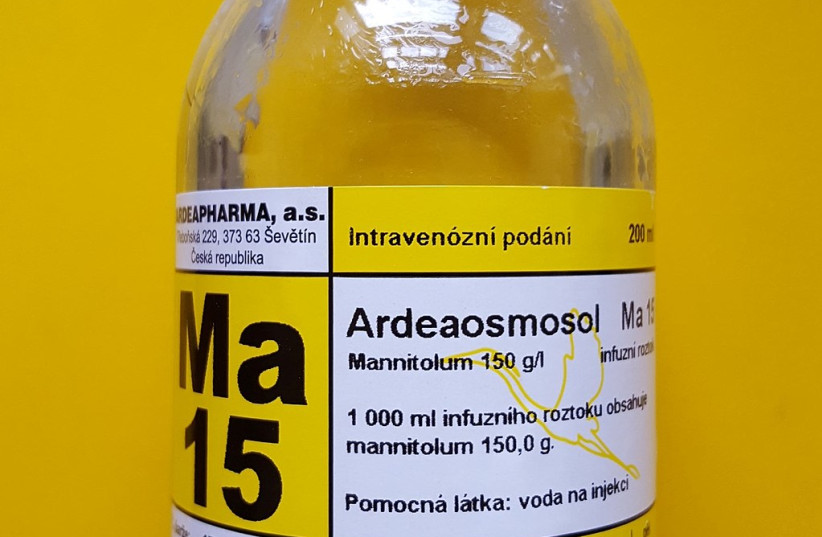Upon discovering he had Parkinson’s disease, an Israeli hi-tech entrepreneur decided to take matters into his own hands and find a viable treatment. However, as many natural, less invasive treatments are not pursued – primarily for financial reasons – Dan Vesely had to do his own research, which involved manipulating the system that leaves many without a better option.
Researchers at Bar-Ilan University published an article about what they called “undone science” – areas of scientific research that remain underexplored because of several potential reasons, such as unprofitability or political ones – with the focus of the study being the Parkinson’s cure “mannitol,” a commonly-used sweetener that Tel Aviv University lab researchers determined was potentially effective in improving the condition of Parkinson's patients.
As a natural substance, mannitol products cannot be patented. Moreover, the global market for existing Parkinson’s drugs is already worth billions, thus potentially useful candidates such as mannitol are ignored in favor of more potentially profitable treatments – deeming them what the medical community calls “orphan drugs.”
In classic Israeli fashion, Vesely, a hi-tech start-up entrepreneur and former senior security-services officer, didn't let this stop him.
Upon being diagnosed with Parkinson's disease, he began doing his own research. After coming across the Tel Aviv University study about mannitol, he began pushing for the drug to be placed on the research agenda, which culminated in the founding of his company CliniCrowd, a crowd-sourcing platform where individuals can share their experiences trying treatments abandoned by researchers, in lieu of proper experimentation.

“This is how I was trained in the service: if there’s a problem, deal with it. No crying over spilled milk or grieving about my misfortune, about what I ‘won,'" he said cynically. "Come on, what do we do next? We think of solutions,” Vesely said in a 2018 interview.
After establishing a mission, the next step for CliniCrowd was to gain adoption in medical circles. Anticipating resistance from medical professionals, Vesely established the company as a for-profit one in order to lend it legitimacy in professional circles, though he did not believe the company would ever be largely profitable.
When his CliniCrowd platform had trouble gaining traction – physicians' objections included comments such as: “this is a home remedy” and “you would be better off getting a blessing from a rabbi,” according to the article – Vesely determined that perception was everything, and decided that if doctors did not consider mannitol a legitimate medicine, he would reframe it as a “nutritional supplement.”
This new strategy led to a crowd-sourced study of Parkinson's patients who agreed to take mannitol regularly for an extended period and report their results. Further clinical research is currently ongoing on the drug for treating Parkinson's.
“My participation in the experiment has turned my world around. I come to the doctor and update him, see? I, Menachem (pseudonym), taught the neurologist that there is such a thing as mannitol and that I am taking part in an experiment with other patients,” said a participant in a web questionnaire about the treatment.
“When I go to see him, he immediately stands up! ‘Welcome’, he says, ‘tell me how you are getting on’. There is a sense that we are colleagues, and that I am doing something incredibly important.”
